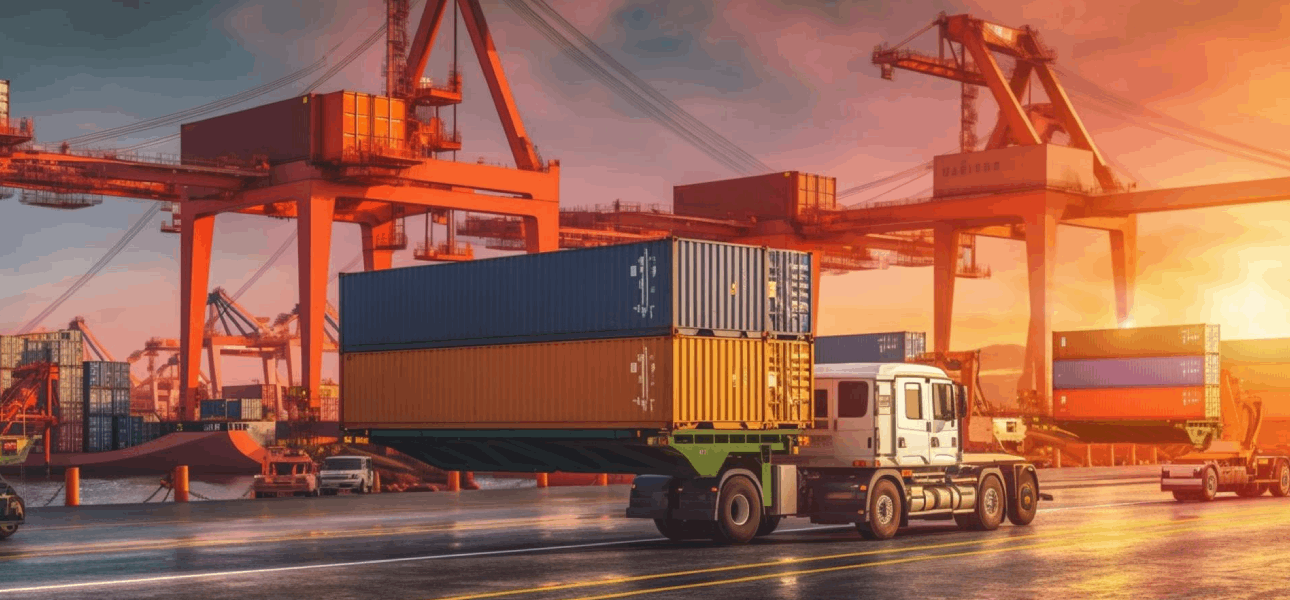Background:
We all lose our cool when we don’t get our courier on time, don’t we? Despite three long years of pandemic followed by a war in Ukraine and military mishaps in Israel, the global supply chain has remained resilient because international trade is managed by the superheroes of international trade: Freight Forwarders.
The world is witnessing a massive surge in global merchandise trade, which is about to reach a staggering $28 trillion in 2025. Freight forwarders are the backbone of the global supply chain, conquering challenges every day to ensure a smooth ride for your treasures across borders.
Synopsis:
Transportation intricacies, manual processes, oscillating global regulations, and limited visibility are just a few of the challenges that freight forwarders face every day. Despite these challenges, freight forwarders ensure that your products reach you within your budget.
This blog concerns freight forwarders’ identities and challenges. We will also delve into the need for digital transformation in the logistics industry and how Rish Info Logistics offers the one digital solution to revolutionize the freight forwarding landscape.
What Do Freight Forwarders Do?
Choosing the Right Route
While an end user may not be concerned, freight forwarders must select the suitable transportation medium for budget, security, and delivery time. Freight forwarders consider a wide range of factors while choosing the suitable mode of transportation, such as product size and weight, ship and date availability, urgency, travel time, loading and unloading process, and more.
Air Freight: It offers unprecedented speed but at a premium. Air freight is a good option for perishable goods or urgent shipments.
Sea Freight: Transportation by sea is chosen when there is a bulk shipment. It is a time-consuming but quantity-induced mode of transport.
Land Freight: Land transport ensures last-mile delivery. Trucks and trains are convenient and cost-effective modes of transport.
The Maestro's Baton - Core Responsibilities
End-to-end Arrangements: Freight forwarders are at the core of logistics activities, combining activities such as booking space in ships, finalizing cost-effective transportation modes, and arranging documents, pickups, and deliveries.
Document Management: Freight forwarders are responsible for securing documents related to cargo, customs, and ships. They ensure that importers or exporters complete all paperwork in time for timely shipment.
Customs Clearance: Freight forwarders should be knowledgeable about customs worldwide. They navigate the complexities of customs regulation, and cargo is cleared from customs without any hurdles.
Unhindered Delivery: Air or land freight, freight forwarders ensure successful shipment, unloading, customs clearance, and final delivery at the destination to ensure that goods reach without damage and constraints.
Freight Forwarders Are Risk Mitigators:
Freight forwarding involves many humongous tasks that involve unmitigated risks for goods, ships, shippers, insurers, and freight forwarders themselves. They maneuvered many delicate tasks to complete one successful shipment.
Risk Management: From overshooting budgets to shipment delays, freight forwarders are always ready with contingency plans to ensure their shipments reach their destinations in time without damage.
Cargo Insurance: Shippers must insure their cargoes before they are loaded. Freight forwarders suggest budget-friendly insurance options to protect goods from theft, fire, or damage.
Challenges Faced by Freight Forwarding:
International trade can’t reach $28 trillion without freight forwarders. However, the traditional way of freight forwarding is challenging and full of complexities that can leave many scratching their heads. In traditional freight forwarding, the workflows are manual, and the documentation processes are manually completed.
Freight forwarders do not receive real-time monitoring of shipments. They often face the mountainous task of navigating regulations and delays due to customs clearances. These constraints can only be mitigated if freight forwarders adapt to technology and digitally transform their operations.
Limited Visibility:
Archaic systems are still the best bet for freight forwarders. Consequently, they do not get a real-time, movement-by-movement update of their cargo. Compared with digital freight forwarding solutions, freight forwarders get live status updates on their cargo, facilitating interventions if required.
Paper Avalanche:
Before a ship starts its journey, all that occupies freight forwarders is paperwork. Invoice, NOCs, customs forms, bill of landing, and whatnot. The entire manual process delays shipment and delivery. Moreover, manual processes are prone to numerous mistakes that may cost a bank.
Borderline Chaos:
Regardless of the event, borders are not known to be complementary. Freight forwarders struggle to get consignments cleared from customs. There are language barriers. Sometimes, a need for an additional document emerges. Therefore, complying with regulations needs an agile digital solution.
Carrier Conundrum:
Mediating shipping rates with carriers is as good as embracing an approaching bull. Neither do they have access to a vast network of carriers, nor do freight forwarders get competitive quotes. Digital freight forwarding solutions eliminate such conundrums and provide freight forwarders with the best deals.
Digital Freight Forwarding Solution: Streamlining the Journey

It is high time freight forwarders bridge the gap between their manual workflows and technological innovation to transform their operations, businesses, and logistics sector altogether. Digital freight forwarding solutions empower freight forwarding companies with efficiency, productivity, cost-efficiency, and business expansion. It’s time to bid adieu to traditional ways and embrace digital solutions for freight forwarders for countless benefits.
Benefits for Freight Forwarders:
Real-time Tracking:
Businesses need to know what Rish Info makes available—real-time visibility of shipments from dispatch to delivery. This allows freight forwarders to work with complete transparency.
Automated Documentation:
Don’t lose critical customs forms or damage essential invoices anymore. Digital freight forwarding solutions automate document management to eliminate human errors and lead to efficient workflows.
Easy Customs Clearance:
Submitting customs clearances requires automation, accuracy, and speed. A digital freight forwarding solution simplifies and automates the process, reducing errors and delays for faster shipment movements.
Centralized Carrier Network:
To remain competitive, freight forwarders can access a vast network of carriers to get the most competitive rates for their shipments. A centralized platform can compare and finalize the carrier.
Benefits for Businesses:
Reduced Costs:
Turning the entire system into an efficient, well-oiled mechanism brings the benefits of competitive pricing, resulting in massive cost savings.
Improved Efficiency:
A digital freight forwarding solution streamlines end-to-end workflow to improve operational efficiency, freeing time to focus on growth.
Peace of Mind:
Real-time cargo status and quick customs clearance bring peace of mind to businesses, as they have clear visibility of their shipments.
Conclusion:
We defined how freight forwarders are unsung heroes of the logistics industry who keep turning the steering wheel of the ship toward the destination. They not only move your cargo from one continent to another, but they keep the global economy moving.
Therefore, as they surf the logistics waves, digital transformation through a digital freight forwarding solution from Rish Info Logistics can lead them toward efficiency, cost-saving, and higher ROI.


